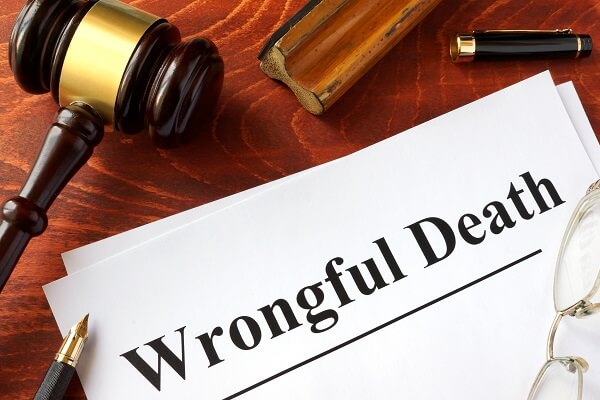The following blog article was updated in January 2022.
Losing a loved one is shocking and heartbreaking.
Learning that your loved one’s unexpected death could have been prevented can make matters even worse. When the loss was caused by the negligence of someone else, whether from a motor vehicle accident, workplace accident, or medical malpractice, you may turn to the law for help.
Family members do have the right to file a wrongful death claim for the damages associated with their loved one’s death. While the law allows you to do this, where do you go once you have decided that you want to file a wrongful death action?
Wrongful death lawsuits are complicated; therefore, you should speak with an attorney in the area that is familiar with a case like yours. Your attorney will need to fight hard against large insurance companies. He or she will need ammunition for this fight; often in the form of extensive investigations, numerous depositions, professionally prepared demonstratives, and expert witnesses. This is the weaponry your lawyer must take to the negotiating table to convince the insurance companies that this is not a fight worth waging in a courtroom. That is typically how lawsuits are settled out-of-court.
And in the rare instance when the opposition fails to see reason, your attorney will take that same ammunition with them to court – and use it to convince a jury.
What is a Spokane Wrongful Death Lawsuit?
Wrongful death lawsuits are claims that the victim died because of the defendant’s negligence. The defendant may be a private party, business, or government entity.
If successful, the victim’s estate (and surviving loved ones) would be entitled to monetary compensation for their loved one’s death.
Most wrongful death claims are pecuniary – meaning victims seek monetary damages. Washington courts have decided that these damages can include:
- Loss of support
- Loss of services
- Loss of prospective inheritances
- Medical costs
- Funeral and burial expenses
The courts carefully consider the victim’s injury, age, character, earning capacity, average life expectancy, the condition of their estate before the death, and the circumstances that led to their death in determining the correct amount of compensation in each case.
Who Files a Wrongful Death Lawsuit?
A wrongful death lawsuit is initiated by a personal representative of the estate. The representative could be a named beneficiary of the estate, but might also be an uninterested third party representing the estate’s best interests. An uninterested party is often best because they have no personal stake in the outcome of the lawsuit.
The representative would be the party responsible for hiring a wrongful death attorney, and the attorney would help file the lawsuit for the estate.
How Long Do Families Have to File a Wrongful Death Suit?
In Washington, a wrongful death lawsuit must be filed within three years from the date of the person’s death. This deadline is set by the statute of limitations. If you miss this three-year window, the court is very likely to dismiss the case.
The statutory scheme for our state is highly elaborate: and we have no tolling of time like many other states. You see in other states, the clock stops, and a minor beneficiary at the time of the decedent’s death can wait until he or she reaches 18 years of age to file the lawsuit. But that does NOT apply in Washington. The statute of limitation here is three years – whether or not the beneficiary is a child.
Furthermore, there are five applicable statutes for wrongful death in Washington; which is why determining how long you must file and when the “discovery rule” applies is complicated.
What is the Discovery Rule?
The discovery rule allows plaintiffs to extend the statute of limitations on the basis that they had not reasonably discovered that they had a claim in time to meet the deadline. In this situation, the three-year time frame would not start until someone reasonably concluded that the death was wrongful. Once the wrongful death is established, the three-year clock starts ticking.
So if the victim died in 2014, but the family found out it was a wrongful death a year later in 2015, they would still have three years from the date of discovery. Then, the statute of limitations would be 2018.
While this sounds simple, “discovery” is not as easy as stating a wrongful death was discovered a few years later.
Instead, it comes down to case law, evidence, and what statute applies to a case.
The Dangers of Waiting Too Long
As stated before, while the law allows for up to three years to file a claim, waiting too long could be detrimental to a case. Therefore, it is recommended that family members speak with an attorney much sooner.
Waiting too long risks damaging the case by:
- Failure to Notify: Regardless of whether you plan to file an official wrongful death claim or not, you are required to notify the party at fault that you intend to sue. Failure to disclose in a reasonable time can force the courts to deny the claim.
- Lack of Evidence: The longer you wait, the less evidence will be available to prove your case. In many cases, your attorney must hire an investigator, and the further they must dig, the more money it costs to bring your case to a conclusion. When too much time has passed, there may be missed opportunities to gather evidence, as evidence may decay or disappear over time.
- Witness Issues: Witness testimony is crucial for most types of claims. With the passage of time, witnesses’ memories become unreliable, they may move or become unavailable, or even pass away. And tracking down witnesses a few years after the fact becomes difficult to even for trained investigators.
- Memory Issues and Depositions: Most personal injury cases and wrongful death claims include the taking of numerous depositions. In a deposition, you will have to recall facts about the situation. If you wait too long, it might be difficult to remember those facts – and it gives defense attorneys a good strategy for invalidating your case.
- Documentation: Excessive amounts of documentation are required in a wrongful death case. Not only do you need to supply your attorney with medical bills, statements, and other documents you possess – but your attorney may need to request copies of medical records, autopsy reports, and police reports. The longer you wait, the harder it is to access these documents.
Speak with an Attorney as Soon as Possible
After the loss of a loved one, the last thing you want to think about is going to court or hassling with a wrongful death claim. However, when your loved one is taken away from you because of someone’s reckless or negligent behavior, the law entitles you to seek compensation.
Speak with a wrongful death attorney from Brett McCandlis Brown & Conner PLLC today. We understand that you have questions, and you should never have to navigate through this process alone.
Schedule a free consultation at 800-925-1875 or contact us online.


